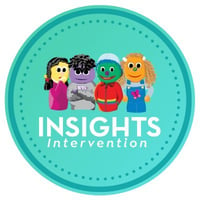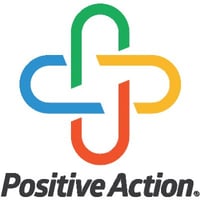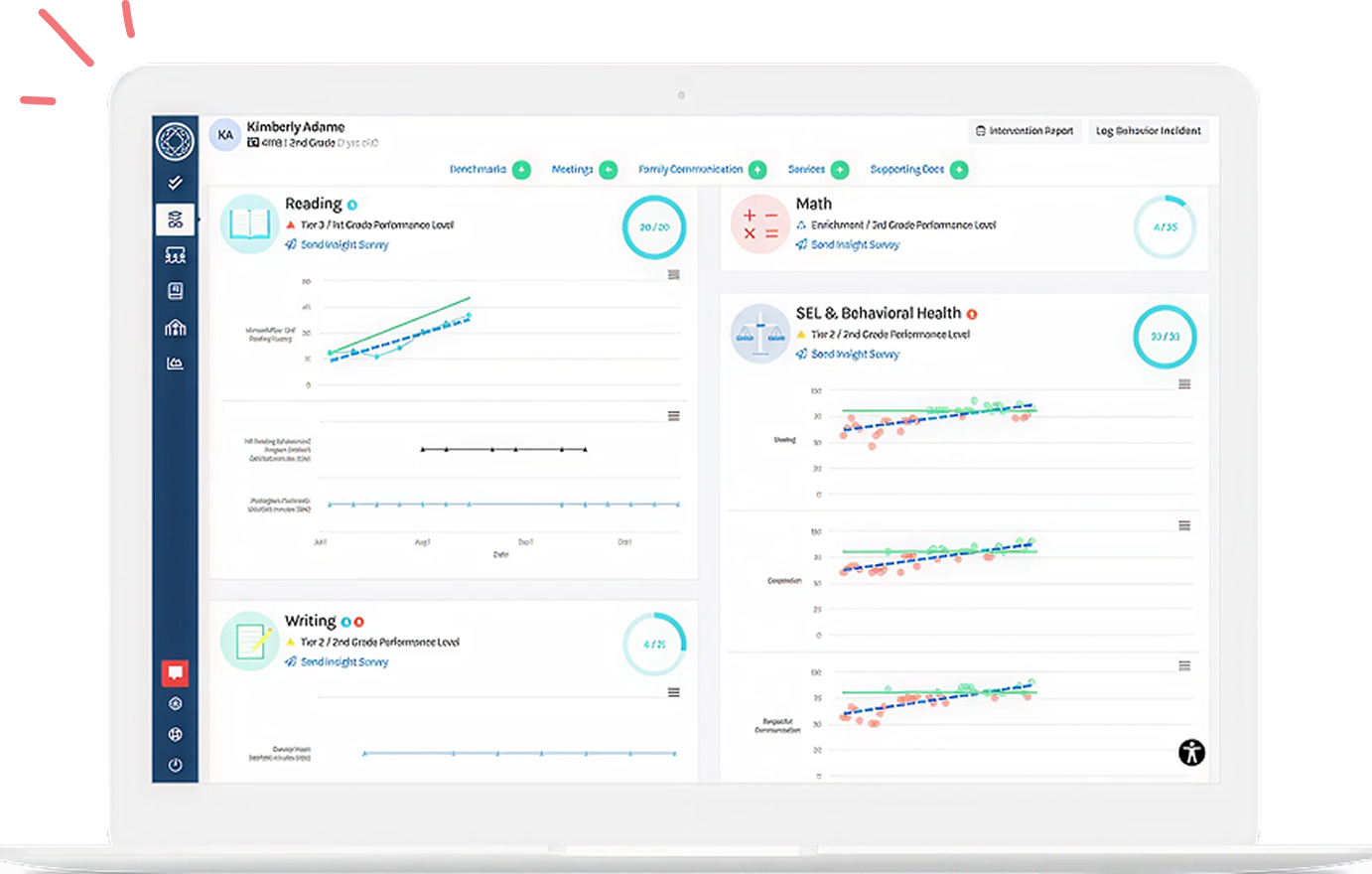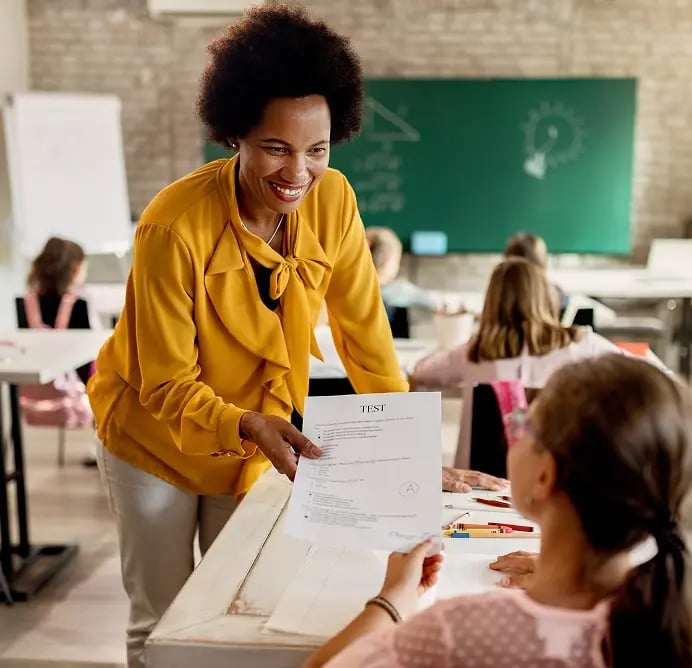A few weeks ago, we posted a blog outlining how to support students’ mental health in an MTSS framework. An important part of this work includes using evidence-based programs and practices that effectively promote students’ sense of well-being.
This week, we are spotlighting three school-based programs that have extensive research supporting their impact on students’ social, emotional, and academic outcomes. If your district or school is looking to implement a mental health prevention program, we recommend reviewing this list to see if any of the following interventions meet the needs of your students and staff.
INSIGHTS
 INSIGHTS intervention is a social-emotional learning program that can be implemented in early elementary classrooms. It can be used as a mental health prevention program in that it teaches children emotional awareness, empathy, problem-solving, and relationship skills.
INSIGHTS intervention is a social-emotional learning program that can be implemented in early elementary classrooms. It can be used as a mental health prevention program in that it teaches children emotional awareness, empathy, problem-solving, and relationship skills.
The program uses puppets as a springboard for discussing different temperaments and how they impact childrens’ responses to their environment. Students are presented with different social problem-solving dilemmas that they discuss and try to resolve with their teachers and classmates.
The curriculum also includes training and professional development for teachers to help them better understand the different temperaments of their students and how to set up their learning environments to better meet their students’ needs.
The impact of INSIGHTS on student outcomes has been studied in multiple randomized controlled trials. The results showed that students who received the program had fewer disruptive behavior problems, higher reading and math achievement, and greater sustained attention after one school year, compared to students in the control group.
Some of the impacts, such as improvements in Reading and English Language Arts, were sustained up until 4th grade. Classrooms that implemented the program were found to have higher levels of emotional support, organization, student engagement, and less off-task behavior, compared to comparison classrooms. Interestingly, the results also showed differential impacts depending on students’ temperaments/personalities.
The program was found to be especially successful for students identified as having a high-maintenance temperament (i.e., students who often react negatively to stress or change, have high activity levels, and low task persistence). These students showed significant improvements in their classroom behaviors and their relationships with their teachers. The program also benefited shy students, in terms of their critical thinking skills and engagement.
Launching INSIGHTS includes two full days of training for teachers, where they learn not only about the curriculum itself, but also about how children’s temperament affects their learning and strategies to reframe their perceptions of students and improve their own teaching and classroom environments to better support their students. The program also includes 10 weekly 30-minute sessions which can be implemented by a trained classroom teacher.
Visit their website if you are interested in learning more about the INSIGHTS program. You can also use their temperament profile survey to identify students’ temperament and how that might be impacting the behaviors you are seeing in your classroom.
Positive Action
 The Positive Action program is grounded in the philosophy that positive actions lead to positive thoughts and behaviors. The program can be implemented in school across all grade levels and include seven units focused on different social-emotional competencies. Topics include self-concept, self-management, social relationships, and self-improvement.
The Positive Action program is grounded in the philosophy that positive actions lead to positive thoughts and behaviors. The program can be implemented in school across all grade levels and include seven units focused on different social-emotional competencies. Topics include self-concept, self-management, social relationships, and self-improvement.
Positive Actions aims to promote student mental health and well-being by promoting students’ self-awareness and self-acceptance and by reinforcing activities and behaviors that contribute to a positive self-concept. The unit topics are consistent across grade levels but the lessons and activities are differentiated based on developmental stages and needs. There are also supplemental materials that cover additional topics for educators, such as school climate, bullying prevention, and family and community involvement.
Positive Action is also an evidence-based intervention. Several studies have been conducted showing the program’s positive impacts on students’ academic, social-emotional, and physical well-being. For example, one large randomized controlled trial followed a population of mostly low-income and ethnic minority youth, from 3rd through 8th grade. Results showed that students who received the Positive Action program had higher positive affect and life satisfaction and lower levels of depression and anxiety, compared to those in the control group.
Other studies have shown that the program significantly improved academic outcomes for students, which in turn led to lower reports of student substance abuse, violence, and sexual activity. Finally, the program has also been shown to influence students’ normative beliefs about aggressive behaviors and bullying and also lead to a reduction of these behaviors over time.
The Positive Action program offers several different training options, depending on the needs or size of the district, as well as different models for implementation. Grade-level kits come with manuals, scripted lessons, materials, activities, and games that teachers can implement directly with students. Some of the high school content is peer-led in small group formats where teachers act as supervisors. The program is designed to be implemented to all students in a classroom for 15 minutes per day.
Student Success Skills
+Program+focuses+on+developing+key+skills+in+an+environment+of+caring%2c+support%2c+and+encouragement+that+increases+student+confidence+and+effort+contributing+to+student+success--1.jpeg?width=200&name=The+Student+Success+Skills+(SSS)+Program+focuses+on+developing+key+skills+in+an+environment+of+caring%2c+support%2c+and+encouragement+that+increases+student+confidence+and+effort+contributing+to+student+success--1.jpeg) Student Success Skills is a K-12 evidence-based prevention model and includes a set of social-emotional learning programs focused on helping students develop critical cognitive, social, and self-management skills. The five free-standing lessons provide students with strategies for setting and achieving goals, building caring and supportive relationships, developing cognitive skills, managing emotion and anxiety, and maintaining a healthy sense of optimism.
Student Success Skills is a K-12 evidence-based prevention model and includes a set of social-emotional learning programs focused on helping students develop critical cognitive, social, and self-management skills. The five free-standing lessons provide students with strategies for setting and achieving goals, building caring and supportive relationships, developing cognitive skills, managing emotion and anxiety, and maintaining a healthy sense of optimism.
The program includes teaching students stress reduction techniques, such as mindfulness. The program is designed to be implemented in a regular classroom with all students. Teachers implement one lesson a week, followed by three monthly booster sessions.
There is also an explicit focus on integrating the skills taught in the lessons into the regular academic curriculum. Additionally, there is a group counseling format for students who need more SEL support as well as a four-week parenting workshop. The program has been designed to include culturally sensitive and appropriate material and can be implemented with Spanish-speaking students.
In a randomized controlled trial, including mostly Lantinx students in 7th and 8th grades, students who participated in Student Success Skills had significant improvements in reading and math achievement as well as their executive functioning skills and self-reported supportive relationships with classmates.
The program was also found to have positive impacts on high school students’ course completion; students who participated in the program in 9th grade had completed more course credits by the end of the year and were more likely to be on track for graduation, compared to students who did not receive the program.
The Student Success Skills program includes detailed manuals and a curriculum that is designed to be implemented without formal training; however, when teachers and counselors do receive training it makes it easier for them to implement the materials effectively with a high degree of fidelity.
The program developers recommend teachers attend one full day of training. There is also a train-the-trainer model where school staff can learn how to become a trainer and provide workshops at their specific schools.
At Branching Minds, we pride ourselves on having the most robust library of evidence-based K-12 interventions and accommodations of any online platform available to schools.
Our library includes over 2000 evidence-based activities, strategies, tools, apps, and programs collected from the most trusted and respected hubs of evidence-based supports, including the Florida Center for Reading Research, What Works Clearinghouse, Evidence for ESSA, Intervention Central, the IRIS Center from Vanderbilt University, and Sanford Harmony.
All of the supports have been reviewed by our team of learning scientists and sorted by ESSA guidelines for determining tiers of evidence. The supports include detailed descriptions to help teachers understand what each support is, why to use it, how to use it in alignment with the evidence, what the evidence is and provide them with any materials necessary to implement the support. Interested to know more? Request a demo.
On-Demand Webinar
Behavioral Strategies in MTSS
Interested in Learning How to Support the Whole Child with Branching Minds?Branching Minds makes MTSS easy, efficient, and effective by bringing together all of the components of MTSS so teachers can collaboratively problem-solve and support all students’ holistic needs. Our system-level solution helps schools improve students’ outcomes across academics, behavior, and SEL. Our platform supports teachers with Behavior and SEL in the following ways: ✅ Assessing SEL Needs with the DESSA
✅ Understand Students Perception of their Own SEL Competence with the SECA ✅ Leveraging SEL Screeners for Tiering ✅ More effective problem-solving ✅ Finding the Right Evidence-based Interventions & Accommodations for Each Learner ✅ Creating Intervention Plans and Monitoring Daily & Weekly Progress in Behavior/SEL ✅ Logging & Monitoring Behavior Incidents ✅ Pattern Matching Behavior Incidents Across Groups
|

About the author
Dr. Essie Sutton
Essie Sutton is an Applied Developmental Psychologist and the Director of Learning Science at Branching Minds. Her work brings together the fields of Child Development and Education Psychology to improve learning and development for all students. Dr. Sutton is responsible for studying the impacts of the Branching Minds on students’ academic, behavioral, and social-emotional outcomes. She also leverages MTSS research and best practices to develop and improve the Branching Minds platform.

Your MTSS Transformation Starts Here
Enhance your MTSS process. Book a Branching Minds demo today.













.gif?width=1024&name=Twitter%20post%20(21).gif)



.png?width=716&height=522&name=Understanding%20Literacy%20Basics%20(Preview).png)
.png?width=716&height=522&name=Tier%203%20Behavior%20Support%20Planning%20(preview).png)
